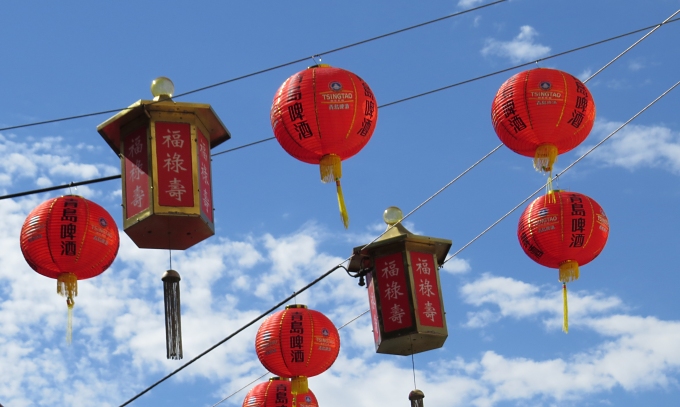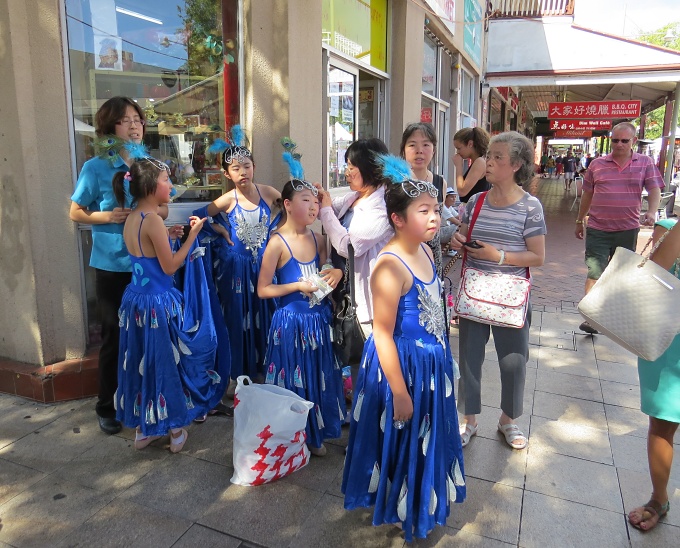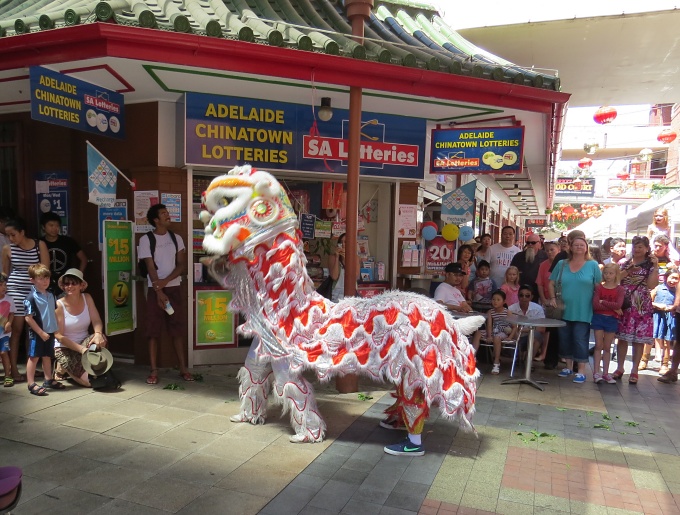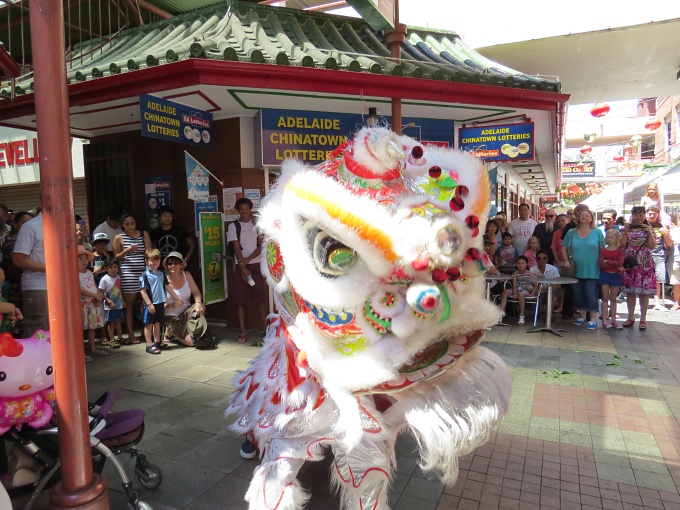The Year of the Horse - Chinese New Year Down Under
/When I read on-line that there would be celebrations in Adelaide's Chinatown for the Chinese Lunar New Year, I put it on our calendar. We've never celebrated Chinese New Years before. January 31st was the official date for the beginning of 4712 on the Chinese calendar, however the celebration which the Chinese call Spring Festival was being held on February 1st. Since the actual Spring Festival continues for another 15 days until the Lantern Festival, celebrating a day late didn't seem to be a problem.
Chinatown is adjacent to the Central Market in Adelaide on Moonta Street, … a pedestrian mall lined with Chinese restaurants and shops. It's not a large area comparative to San Francisco, New York or Sydney … just the one street, but the local crowds spilled onto nearby closed-off streets, spirits were high, the temperature was sizzling and we were in store for some fine entertainment. Because of the heat, the festivities didn't start till 4PM.
Traditionally, the Lunar New Year festival was a time to honor ancestors and local deities. Evidently, within China, regional customs and traditions vary widely. Sometimes family reunion dinners are held New Year's Eve. A thorough cleaning of the house is important to sweep away any bad luck and welcome new luck for the coming year. Red, corresponding with the element of fire is the traditional color for the Lunar New Year, symbolizing good fortune and joy. Bright red decorations, lanterns and globes were everywhere. We wore our red shirts … we need all the good luck we can get.
Food, craft and commercial stalls were set up everywhere offering everything from …. yum cha (afternoon Chinese tea with dim sum type dishes), mask painting and cold Tsingtao (Chinese beer) to yiros (kabobs), discount phone services and excursions for cage diving with great white sharks.
Some people were dressed in traditional Chinese finery for performances or just for the celebration. A stage was set up in the middle of closed-to-traffic Gouger Street and singers and dancers kept the crowd entertained.
Stores, kiosks and street vendors sold red trinkets and good luck charms to honor the day. It was an enormous ethnic street fair inviting everyone to join in.
The highlight of our day was watching a traditional lion dance (Shi Zi). The lion performs the traditional custom of "cai qing", literally “plucking the greens”. Unlike the dragon dance in which many people are involved, the lion dance is only two young men in costume accompanied by the beating of drums, gongs and cymbals which are synchronized with the lion's movements.
A pink-masked “laughing Budha” appears out of nowhere and teases the lion with his fan to the delight of the crowd. With extremely cat-like movements including licking his paws, crouching and curiously investigating his gift of greens , the lion moves forward. His eyes moves, his tongue moves, his tail wags and when he lies down, his whole body quivers as if he's breathing or purring.
Local shop keepers leave out “greens” to which a red envelope (traditionally containing a money gift) is attached. When the lion finally “eats” the greens, he spits them back out, but keeps the red envelope. The lion dance is said to bring good luck and fortune to all involved.
It is the Year of the Horse in the 12-year cycle of the Chinese zodiac. If you were born in the year of the horse (1942, 1954, 1966, 1978, 1990, 2002, 2014), you're energetic, bright and intelligent. You have excellent communication skills and enjoy being in the limelight. On the downside, horses are known to be impatient, hot-blooded and sometimes pessimistic. They're not particularly good at managing finances and sometimes have bad tempers.
In order to accommodate being down under, the Year of the Horse has an equivalent Australian animal … it's the Year of the Kookaburra. What's your Chinese Zodiac sign? How about your Australian Chinese Zodiac sign? Check it out and its attributes.













